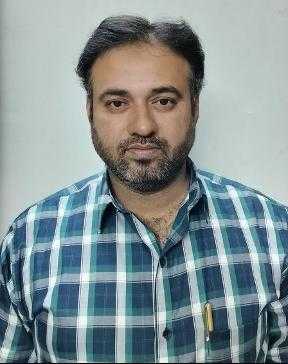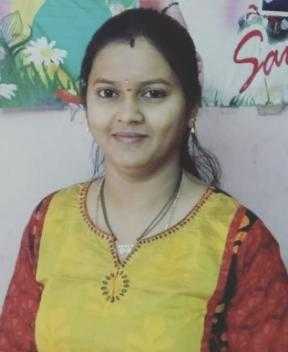Expert Physiotherapy at Home
Certified physiotherapists visit you at home to provide focused, one-on-one care tailored to your needs. With no travel or waiting rooms, recovery happens in a setting that is comfortable, familiar, and built around your convenience.
Personalised Recovery Programmes
Every treatment plan is designed to suit your condition, goals, and pace. Our physiotherapists follow structured, evolving protocols to ensure consistent progress, with each session aligned to deliver meaningful results.
Trusted Physiotherapists. Real Results.
Our team comprises experienced, background-verified physiotherapists trusted by thousands of families. With a strong focus on safety, reliability, and clinical outcomes, we make recovery at home both effective and reassuring
Patient Testimonials
Portea Physiotherapists for Home Visits
Meet some of our experienced and dedicated healthcare professionals

Dr. Lokesh G
Physiotherapist
Specializations
Experienced in Neurological rehabilitation, Orthopaedic physiotherapy, and Paediatric care
Delivers structured, high-impact treatment plans across neuro, ortho, and paediatrics—ensuring safety, comfort, and measurable recovery at every stage.

Dr. Mohammed Sarwar
Physiotherapist
Specializations
Experienced in Neurological rehabilitation, Adult physiotherapy, and Paediatric care
Combines deep clinical expertise with a compassionate approach, supporting both adults and children through neuro and physical rehabilitation that promotes long-term independence and recovery.

Dr. Nelapati Divya
Physiotherapist
Specializations
Skilled in Orthopaedic rehabilitation, Manual therapy techniques, and Paediatric physiotherapy
Brings a personalised, hands-on approach to healing—combining structural expertise with paediatric sensitivity to restore movement, relieve pain, and improve everyday function.

Dr. Naveen V
Physiotherapist
Specializations
Trained in Pain management, Cardiac and Orthopaedic rehabilitation, Neurological care, and Neural tissue mobilisation
Brings clinical precision and empathy together—designing science-backed recovery protocols for pain relief, nerve mobilisation, and cardio-neuro-ortho rehabilitation across all age groups

Dr. Miloni Savla
Physiotherapist
Specializations
Holds an MPT in Orthopaedics with a focus on Musculoskeletal rehabilitation and strength recovery
Delivers focused, movement-oriented therapy grounded in orthopaedic science—helping patients rebuild strength, restore function, and return to daily life with confidence
Other Cities
Physiotherapy Treatments

floppy baby syndrome symptoms
The signs implying hypotonia are many, varying with respect to the cause underlying each condition:
- Doughy and soft muscles that exhibit decrease in their tone
- Shallow and uneven breathing
- The limbs show capacity to be extended beyond the natural limit
- Gross delay in the development of motor skills
- Underactive gag reflex (the mouth being open and the tongue sticking out) is dominant
Under general circumstances, no such treatment therapy is recommended for mild congenital hypotonia, but periodical check-ups might become a necessity for conditions directly associated with the problem, such as frequent incidences of joint dislocations. When prompted by an underlying condition, addressing ‘Floppy Baby’ Syndrome becomes a more elaborate affair since it necessitates that the condition underlying it is treated first. It is then quickly followed by supportive and symptomatic therapy for hypotonia. Physiotherapy aids in enhancing motor control and improves the strength of the body. For children and infants, therapy could also encompass sensory stimulation programs. On the other hand, occupational therapy, in addition to speech-language therapy can successfully alleviate problems related to speech, breathing, and difficulties associated with swallowing.
Treatment procedures help to increase the muscle strength, while sensory stimulation procedures are sought once the cause behind the syndrome is established. Programs of this nature mostly include rigorous physical therapy or other school-based programs, along with other suitable forms of therapeutic remedies. Children affected by this condition are usually treated by a neurologist, Development paediatrician, physical therapist, genticist, language/speech pathologist and occupational therapist. The world of otherwise typical children might prove to be a difficult one for the hypotonic one. Medical supervision and guidance must be followed religiously with no exemptions made in this regard. Close monitoring of the baby’s progress should then determine the number of follow-up procedures. With a proper treatment schedule, your child will soon race against his peers.
If you think your baby is unable to contract its muscles accompanied by a poor head control and floppy muscles, get in touch with a PORTEA physiotherapist today
Dr. Rajprabha Patra
Dr.Rajprabha Patra practiced as a Dental Surgeon for 5 years before making a switch into the business domain with an MBA from ISB. As the Product Manager for Counselling Services at Portea, she aims to make a difference in the way mental health is perceived in India.
Doctor Consultation
Nursing
Physiotherapy
Trained Attendant
Elder Care
Mother & Baby Care
Lab Tests
Medical Equipment
Speciality Pharma
Critical Care




